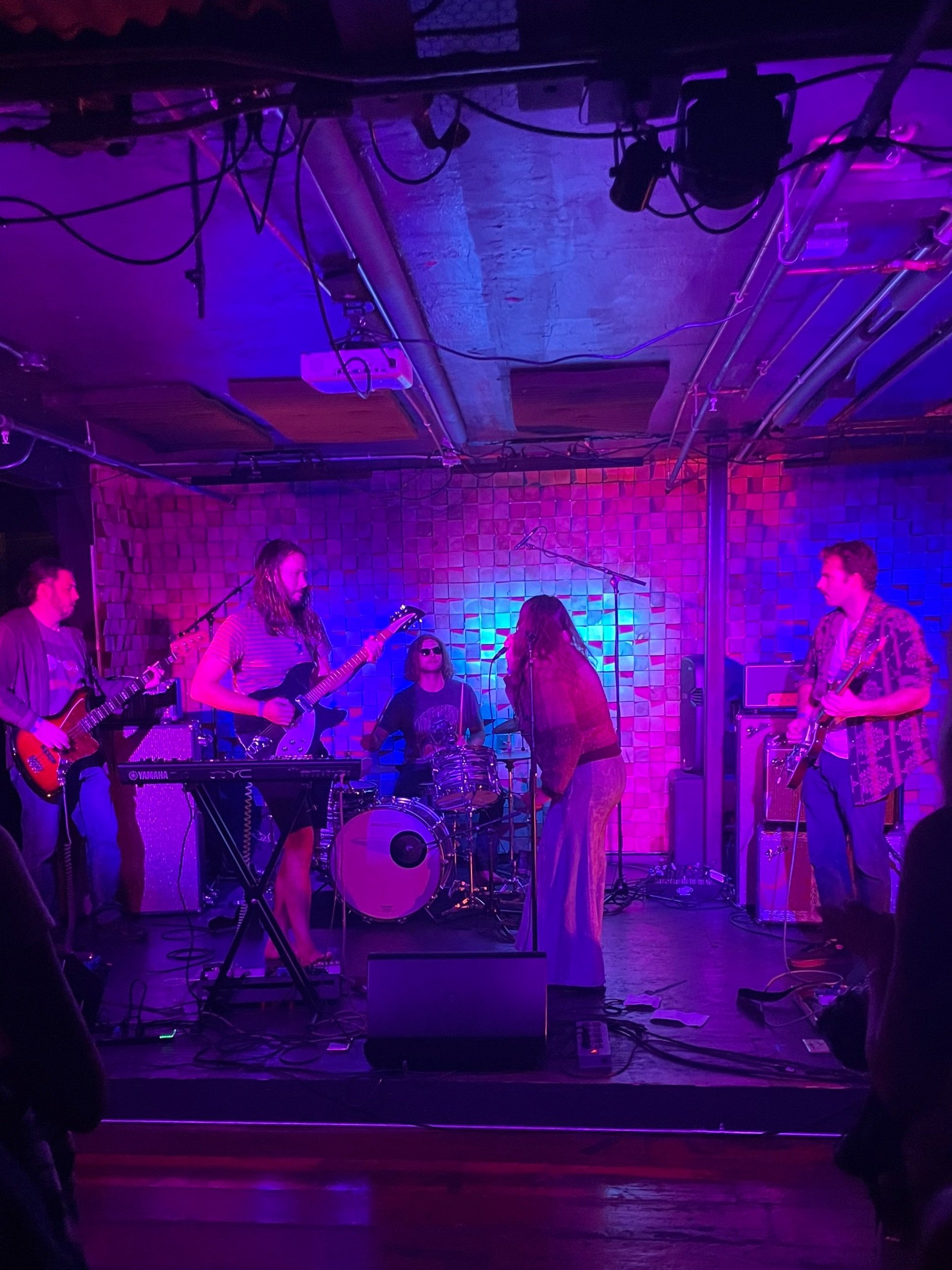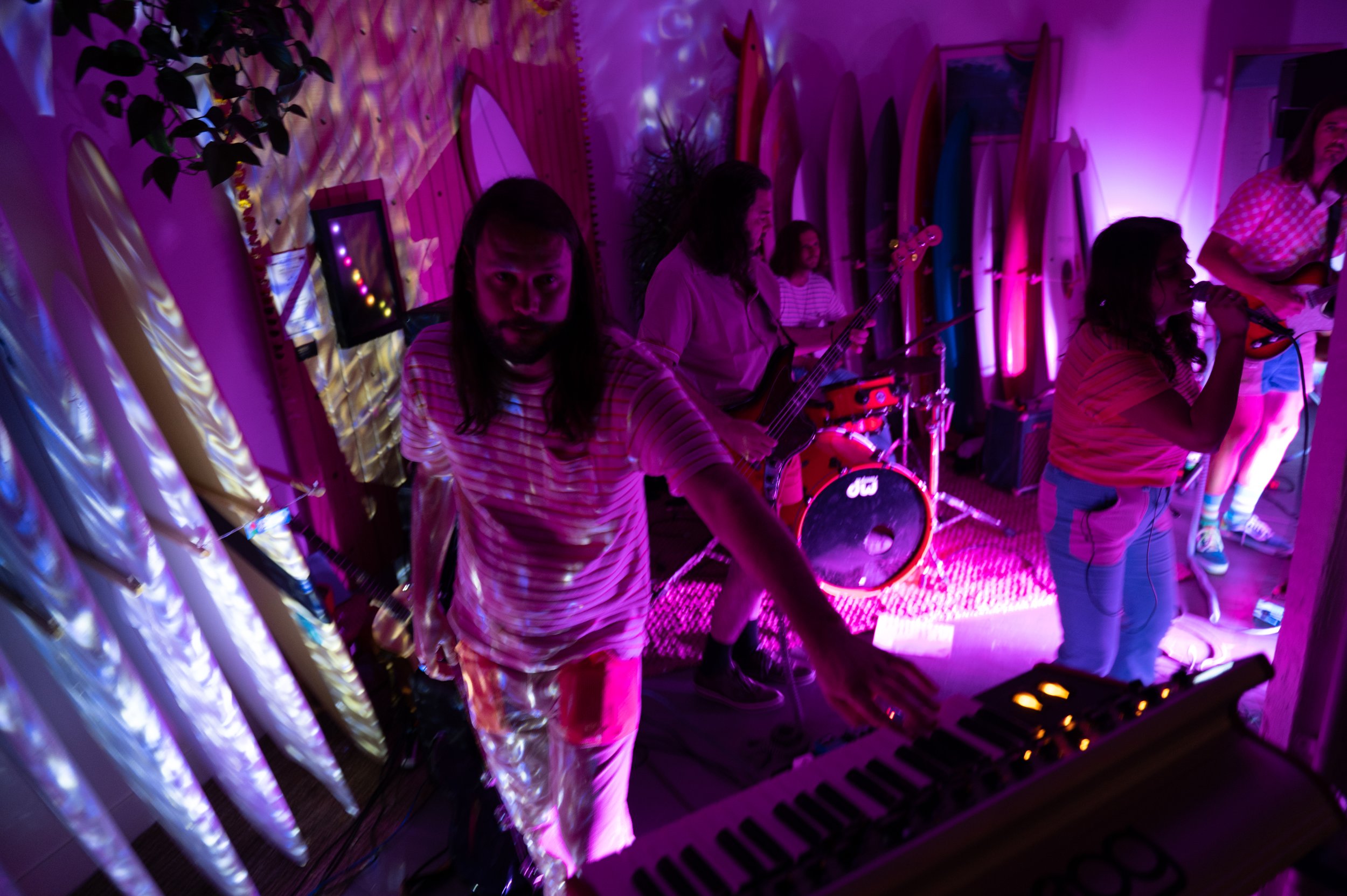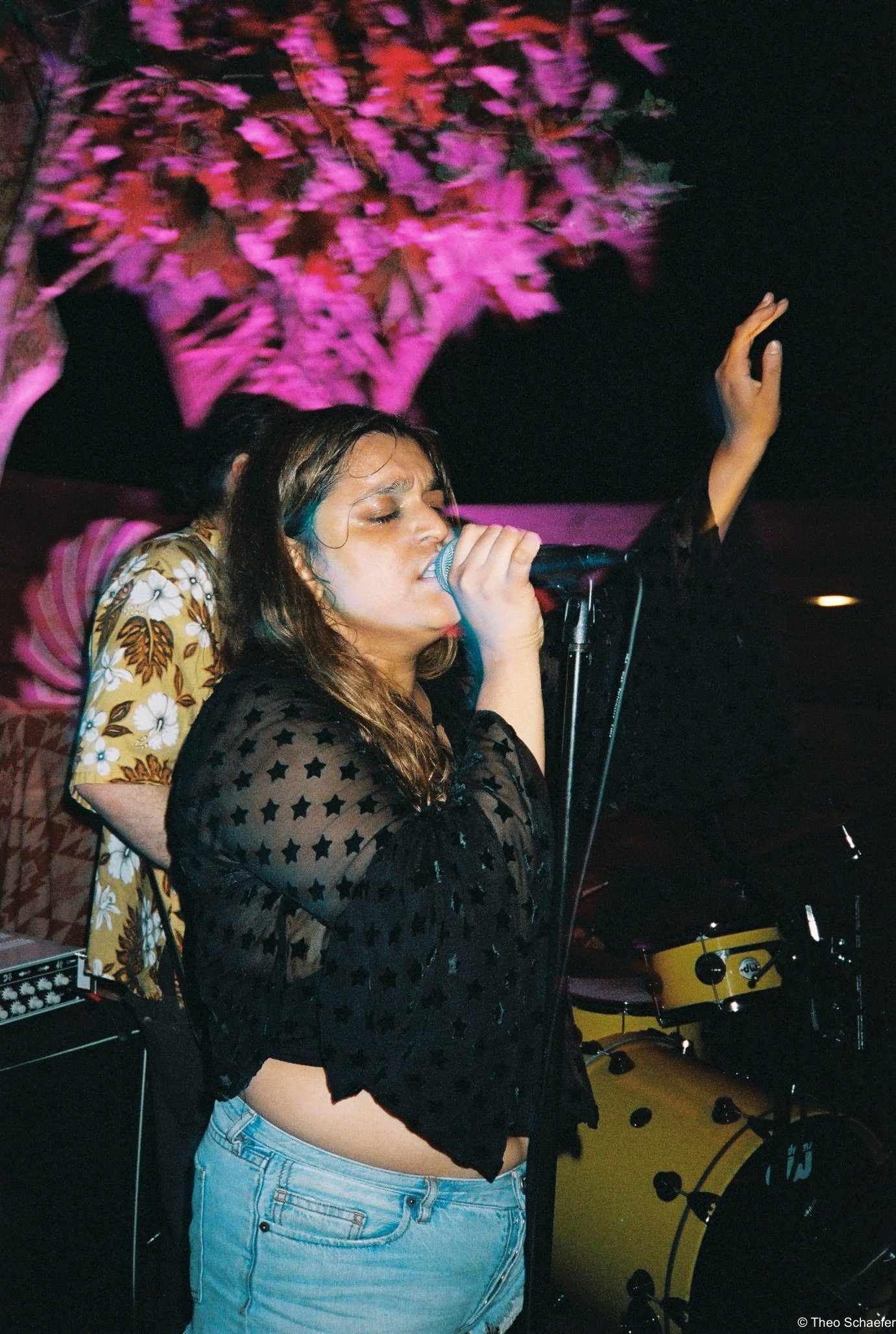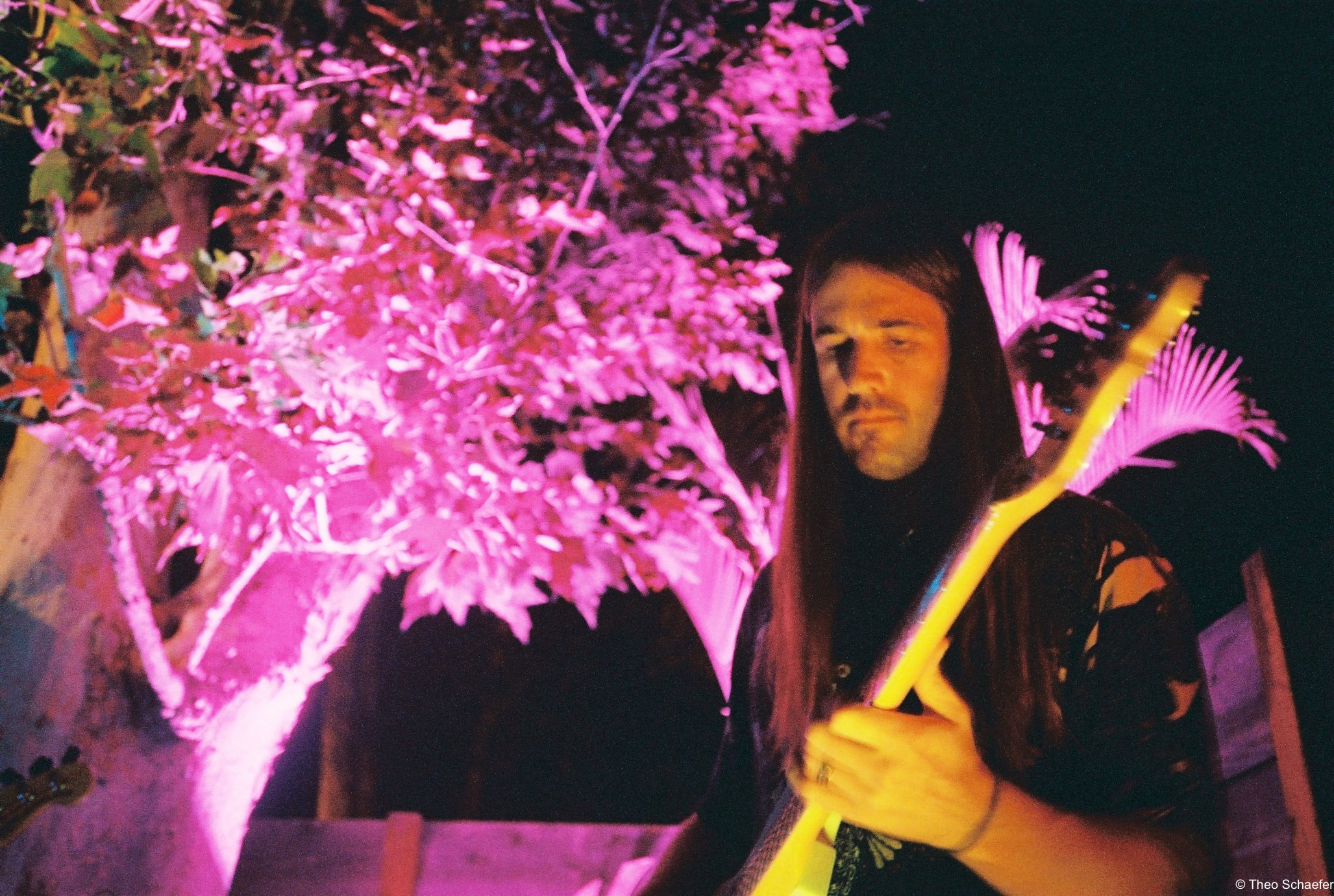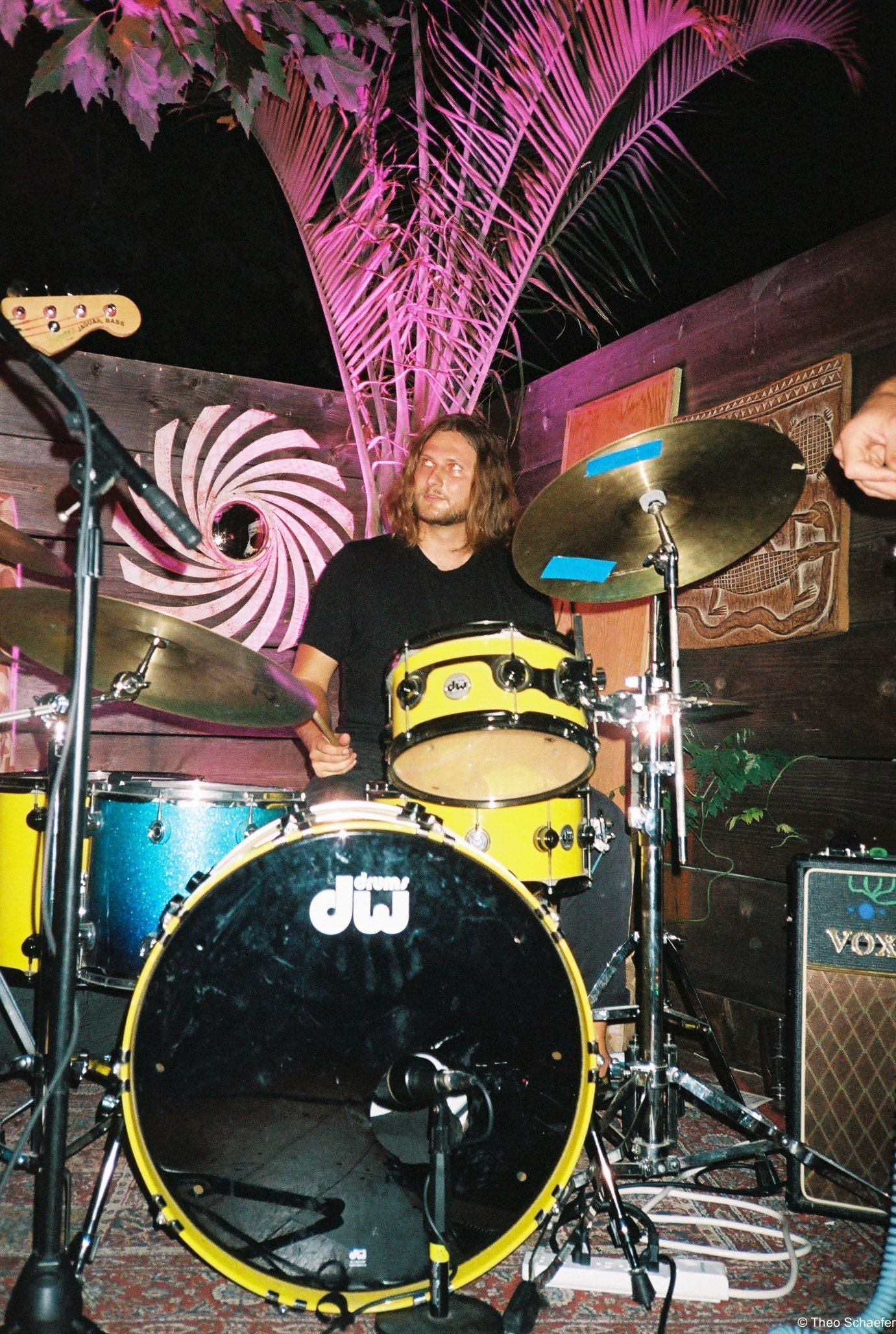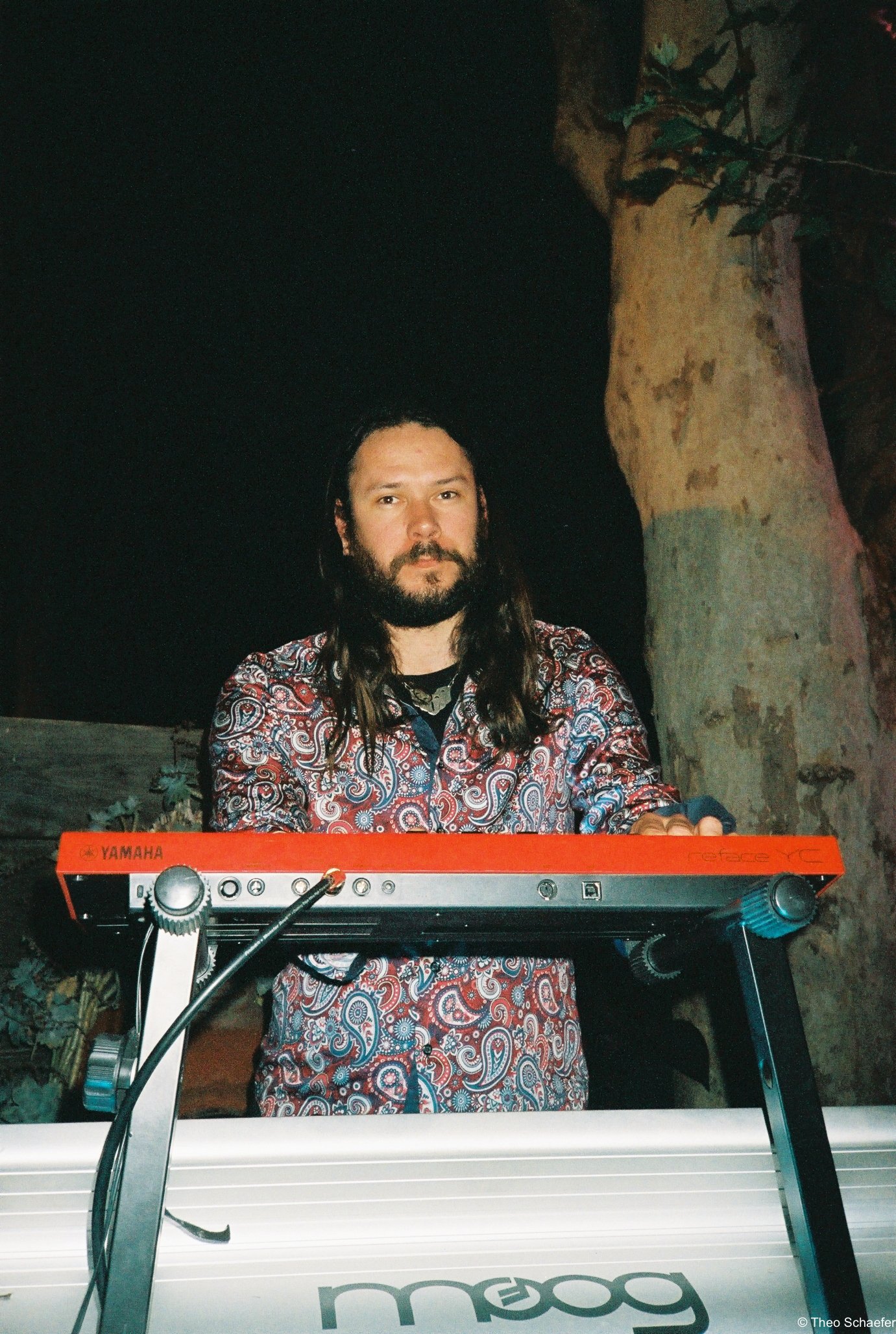From the primal opening tom-tom beat and interstellar freakouts of Killer Kaya’s ecstatic, mind-bending new psychedelic opus, ‘Tunnel at the End of the Light’, the Santa Barbara band strikes sparks. The album is a heady, eclectic affair unlike anything else in the modern psych-rock canon. Never content—like so many contemporaries—to merely ape the 13th Floor Elevators in yawn-inducing, period-piece Nuggets cosplay, Killer Kaya synthesizes a diverse sonic palette that draws as much from latin jazz, dub, tropicalia, prog & stoner rock as it does the late-’60s Bay Area sounds of Big Brother, Santana and Jefferson Airplane.
Killer Kaya—who have already shared bills with Shuggie Otis, The Kills, Cat Power, Teenage Fanclub, Levitation Room, Sugar Candy Mountain, Spindrift & The Strawberry Alarm Clock—further carve out their niche when the vocals enter, unveiling the hypnotically droning, operatic and instantly identifiable howl of classically trained lead singer Apoorva Chiplunkar. Her voice is an ethereal, haunting force of nature, primed to open up the sky above some ancient Andean pyramid like a shaman calling down the ghosts of ancestors thousands of generations removed, not to mention their space-suit-donning future descendents.
“We’re not genre purists at all”, Apoorva says. “Our music has a psychedelic color, but it’s also a bit of jazz, a bit of funk. Sometimes it’s heavy and Sabbathy. Psychedelic is a broad term; to me, it’s a tonal thing more than a specific sound—those warm, resonant delays and reverbs, and the layers they create. You can make any genre psychedelic. You can make it what you want. So each of our songs and albums is different, though they’re tied together by this Central Coast feel; this unique California coastal sound”.
Written during a tumultuous time—for the band and the world—’Tunnel at the End of the Light’ tragicomically grasps at hope and order in the midst of chaos. Like so many other artists, Killer Kaya’s 2020 tour plans vanished into the ether with the pandemic, while at the same time, some members of the band were coping with grief and loss in their families. Getting together to write and record the songs that became Tunnel was the one thing that kept them relatively sane.
“I think it was Winston Churchill who said, ‘If you’re going through hell, keep going’, and that’s what we did”, Apoorva says. “The song ‘Tear Up the House’ is about one of our mothers recovering from surgery. She’d told us she felt crazy—that she wanted to tear up the house because she couldn’t get up and do anything. That feeling of restlessness and pent-up frustration was a major theme for us on the new album; but also trying to find the silver lining within that—trying to make art and find beauty in the world; to have fun even though the shit’s hitting the fan and everything feels really dark and intense”.
Through it all, Killer Kaya leaned into the close friendships and deep bonds at the band’s core. The studio became a sacred space for them. “It’s all about the people you surround yourself with”, Apoorva says. “Things can still be tough, but at least it’s tough together. There are times when one of us might be having the worst day, but you go into the studio with these people you love, you make music together and everything else melts away. It’s a space where you can share what you need to share. In a lot of ways, we’ve become a family—there are times we get on each other’s nerves, but we’re all best friends, too”.
When Apoorva first joined Killer Kaya, they’d already been a band for a few years, but only in the loosest sense, founding members Zach Rengert (guitar, keys), Eric Engel (guitar) and Alex Pavellas (bass) getting together for the occasional jam session with Zach and Eric alternating on drums and guitar. Eric, as it turns out, was Apoorva’s college chemistry tutor. “I had just quit the voice program at UCSB”, she says. “It was a difficult decision, and I was pretty depressed about it. Eric picked up on this and invited me over to sing with the band. At that stage, it was a total garage, black lights on the ceiling, cover songs. But once I was officially in, we started writing collaboratively, playing shows, and it became a more synchronized unit”.
By the time they’d begun their first recording sessions, Killer Kaya had added a horn section. It was a sound that dominated the band’s first two records, ’29 Lives’ (2017) and ‘Persimmon Perspective’ (2018), the latter recorded by Tommy Dietrick (Brian Jonestown Massacre, Sky Parade, David J). Yet underneath it all, Killer Kaya’s essence—that dubby, tripped-out, kaleidoscopic Central Coast sound—was still there, albeit in the context of a psychedelic soul revue.
With the recording of ‘Tunnel at the End of the Light’, the band has entered a new era, leaving behind the auxiliary brass to focus on the contributions of the band’s five core members, including their seemingly octa-limbed jazz-maniac of a new drummer, Justin Kass, whose addition to the lineup has been a potent shot of adrenaline.
“Justin lives to drum”, Apoorva says. “Technically, he’ll blow your mind, he’s fearless and super intuitive when he plays. Plus, he’s like a character from Point Break with this surfer-dude banter, always perma tan, shirt off, sweating, drumming. Though he’s from Chicago, which is a pretty hilarious paradox”.
Apoorva credits the heavier, wilder sonic shift of the new album to three things: Justin taking over behind the kit, Zach’s newfound obsession with synths (the record is awash in Moogs), and how creatively the band is reacting to these new evolutionary features.
“We’ve got a bunch of intellectual, analytical people, and I think they bring that to their art”, Apoorva says. “There’s a love of experimenting with different sounds. Zach’s a chemist with a PHD in organic synthesis; Eric and Alex teach at the university, Eric chemistry, Alex math and physics. But that’s what makes Killer Kaya so much fun—it’s a band of smart, awesome degenerates. That’s us, really”.
Vocals / Apoorva Chiplunkar
Guitar / Zach Rengert
Bass, Guitar / Alex Pavellas
Guitar / Eric Engel
Drums/ Justin Kass
Photos by: Theo Schaefer, Benjamin Hurst and Richie De Maria
